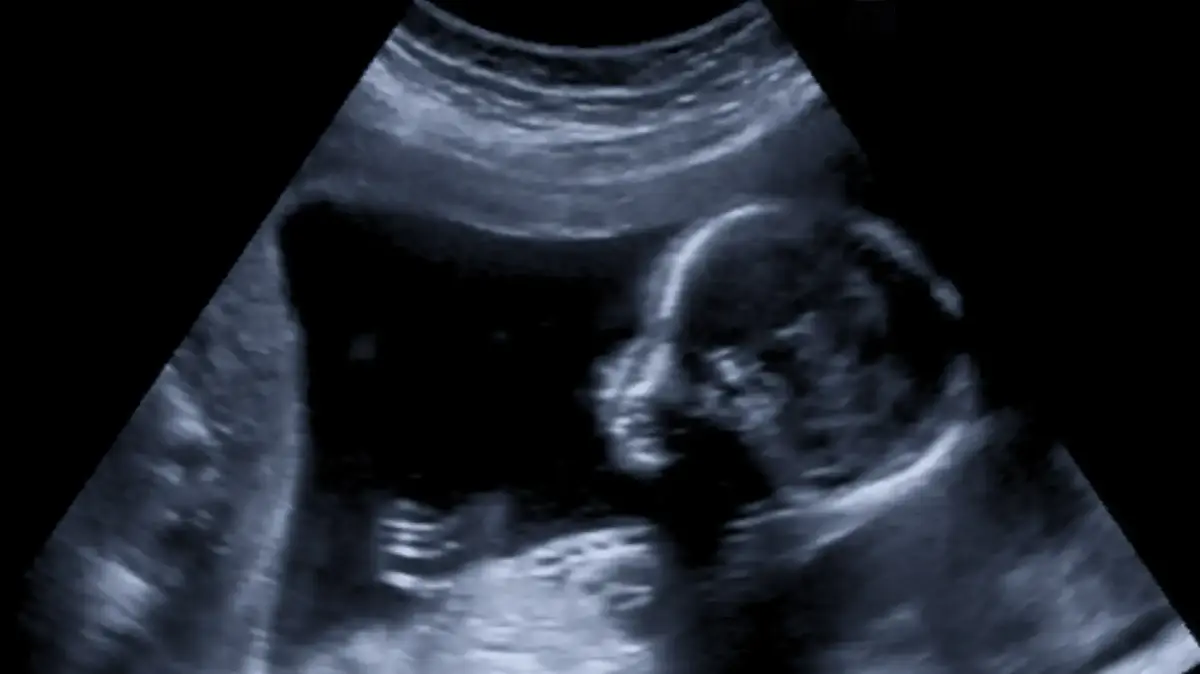health
Pregnancy and Birth
Stressful: Researchers have found the plastic particles in the placenta of embryos
In a recent study, researchers found the presence of tiny plastic particles in the placenta of embryos, calling the findings the most alarming.
"It's like giving birth to a cyborg baby: it is not composed solely of human fits"
Tags
placenta
Pregnancy
Embryos
Plastic
Walla!
health
Thursday, 24 December 2020, 06:21
Share on Facebook
Share on WhatsApp
Share on general
Share on general
Share on Twitter
Share on Email
0 comments
It is estimated that the mothers swallowed or breathed the plastic particles and thus they reached the placenta.
Ultrasound of fetus in utero (illustration: shutterstock)
Microplastic particles were first discovered in the placentas of fetuses before birth, and researchers say this is a "very worrying matter."
The health effects of plastic particles in the body are still unknown, but scientists said they may carry chemicals that can cause long-term damage or damage the developing immune system of the fetus.
How did the plastic particles reach the placenta?
It is estimated that the mothers swallowed or breathed them.
The particles were found in the placentas of four healthy women, who carried normal pregnancies that ended in normal births and the researchers noted that they were found on both the maternal side of the placenta and on its fetal side, as well as within the membrane within which the fetus develops.
More on Walla!
NEWS
Chips and DNA?
Definately not.
This is what is really inside the vaccines for corona
To the full article
In the analysis they performed, the researchers found about a dozen different types of plastic particles in the placenta, and they examined only about 4 percent of the placenta, which raises the hypothesis that the total number of plastic particles in the placenta is much higher.
All the particles found were closely examined and found to be plastic particles painted in blue, red, orange and pink and may have originated in different packaging of products, colors or cosmetics and personal hygiene.
Twelve different types of plastic particles were found on both the maternal side of the placenta and the fetal side.
Placenta (Illustration: shutterstock)
Most of the particles were 10 microns (0.01 millimeters) in size, which means they are small enough to penetrate and pass through the bloodstream.
So it is possible that the plastic particles also made their way into the babies' bodies, but the researchers did not have the opportunity to examine this.
More on Walla!
NEWS
Pigmentation?
This is exactly the time to take care of.
This is how you do it at home
Worrying study: Climate change could harm pregnancy
Instead of an epidural?
Sterile water can relieve labor pains
The weekly tip: choose the perfect bedroom for you
"Like giving birth to a cyborg baby"
"It's like giving birth to a cyborg baby: it is no longer composed solely of human cells, but is a combination of biological and inorganic bodies. The mothers were shocked," said Antonio Ragusa, director of the Department of Obstetrics and Gynecology at San Giovanni Calibita Patbanfortali Hospital in Rome and who stood At the head of this study.
Mothers are born with a plastic-free protocol to ensure that their placentas are not contaminated with plastic particles after birth.
Postpartum Baby (Illustration: shutterstock)
In the study, published in the journal Environment International, the researchers concluded that "due to the critical role of the placenta as a supporter of the fetal development process and its interface with the external environment, the presence of potentially harmful plastic particles is a matter of great concern. "Micro-plastics lead to an immune response or they release toxic pollutants, which can cause damage."
The researchers further noted that the possible implications of microplastics on embryos include growth impairment.
The study also involved two other women whose placentas did not contain plastic particles and this difference may be due to different physiology, or differences in their lifestyle and diet, the scientists explained.
Birth in a plastic-free protocol
To ensure the reliability of the study, Italian researchers will give birth to the women who participated in the study in a 'plastic-free protocol', in order to avoid a situation of external contamination of the placenta in the plastic.
The midwives and doctors who attended the birth wore cotton gloves and used only towels made from 100% cotton in the delivery room.
Two months ago, a study was published that found that babies consume millions of plastic particles daily from feeding bottles.
Baby eating from a bottle (Illustration: shutterstock)
Contamination of microplastic particles has already reached every corner of the globe, from the summit of Mount Everest to the deepest oceans and it has been proven and demonstrated that humans consume and absorb these particles through food and water and even inhale them.
The effects of plastic particles on the body are not known for sure and scientists call for an urgent assessment of this matter, especially when it comes to babies.
Last October, a study was published in which it was found that babies who feed on plastic bottles swallow millions of micro-plastic particles every day.
In 2019, researchers reported that they found air pollution particles on the embryonic side of placentas, indicating that infants are exposed even before birth to the polluted air created by vehicle traffic and burning fossil fuels.
Share on Facebook
Share on WhatsApp
Share on general
Share on general
Share on Twitter
Share on Email
0 comments


/cloudfront-eu-central-1.images.arcpublishing.com/prisa/2RQK76CJRZCS5KCBA56WRJ5CEU.jpg)








